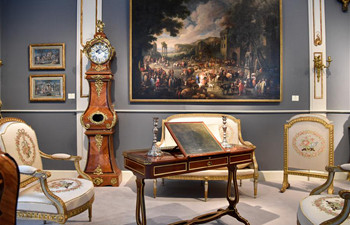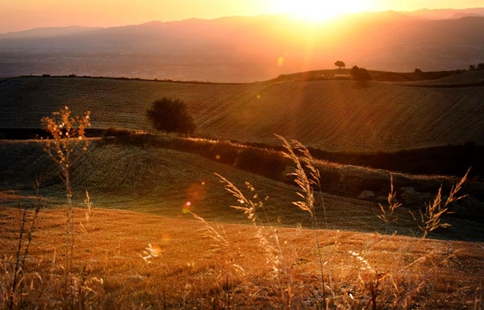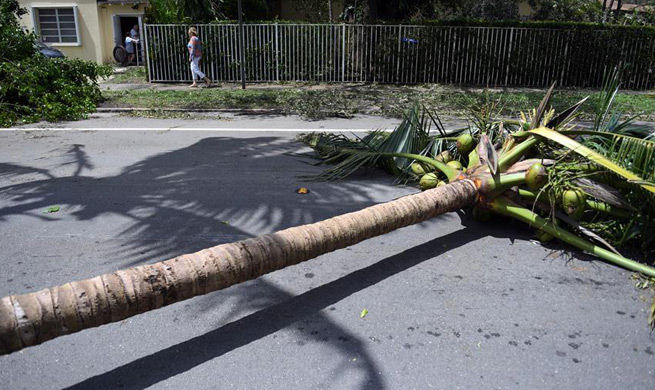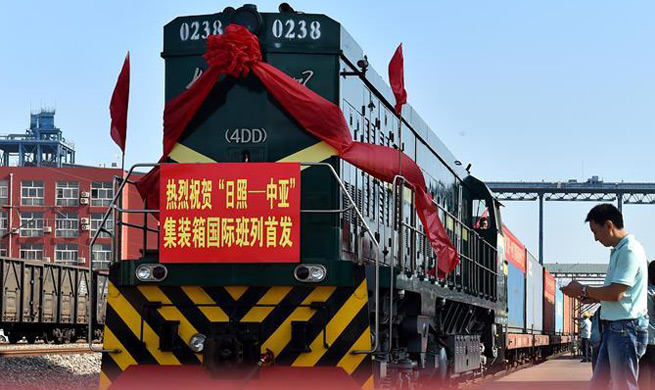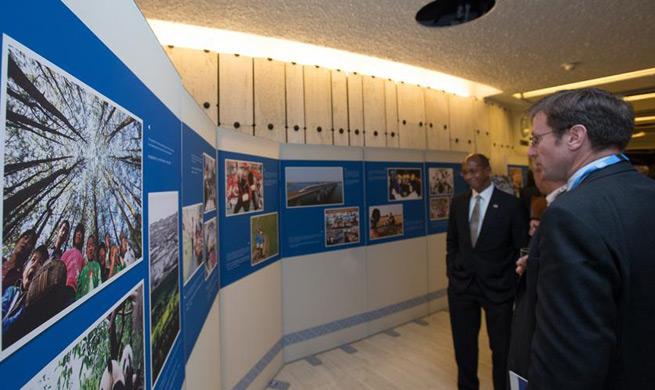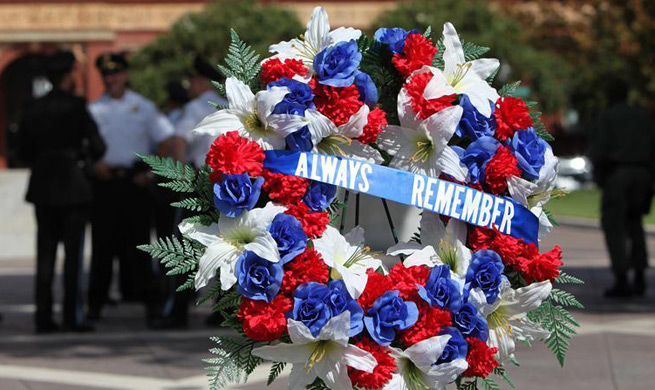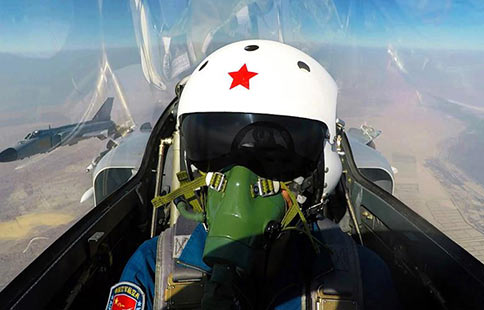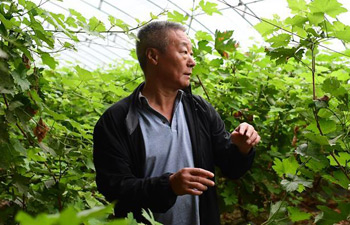ARBIL, Iraq, Sept. 12 (Xinhua) -- The first step following the independence referendum in Iraq's Kurdistan region is to launch an open dialogue with Baghdad to guarantee better relations in the future, a leading Kurdish figure told Xinhua in an exclusive interview.
"Our goal by the referendum is clear, which is to apply our right of self-determination for the Kurdish people, not a bargaining, not diplomatic pressure, not a maneuver for better position, therefore the first step is to launch an open dialogue with Baghdad," said Hoshyar Zebari, a leading figure in Kurdistan Democratic Party (KDP) headed by President Masoud Barzani.
The Kurdish leadership suggested the open dialogue held with international participation by the permanent members of the Security Council, the United Nations and the Arab League, Zebari said.
"We ask them to come and help us to find the best formula for living together on new bases," he said.
"Whatever the result of the referendum, Kurdistan needs Baghdad as a strategic depth and Baghdad needs the region as a strategic depth in terms of security, political, economic, trade, oil and gas, tourism, cultural and social communication. The referendum does not mean final rupture," said Zebari, also former Iraqi Finance and Foreign Minister.
The leading Kurdish figure also dispelled the worry about the negative impact of the referendum on the war against Islamic State (IS) militants.
"The referendum will not affect the war against the terror of Daesh (IS), and we will work to get rid of Daesh, not only physically, but also ideologically," he explained.
"Referendum will not affect our commitment to fighting terrorism and we are ready to sign an open agreement with the Iraqi government in the terms of cooperation, security and intelligence coordination," Zebari added.
"All the residents in the region will participate in the referendum, including the Arab tribes in cities of Sinjar, Khanaqin, Makhmour and Kirkuk, as well as the Turkomans, Yazidis, Assyrians and Shabak," he said.
Meanwhile, Zebari also tried to send reassurance messages to neighboring countries.
"Referendum will be in Iraq exclusively, and it is not for the establishment of a Greater Kurdistan at all. This referendum is for the people of Kurdistan in Iraq exclusively. Even inside Iraq, the Kurdish citizens living in Baghdad and other areas, outside both Kurdistan and the disputed areas, are not included in the referendum," he said.
Zebari said the referendum (in the disputed areas) does not mean drawing the borders of the Kurdish region in Iraq, but it means to explore the opinion of the people there about their future.
The Kurds consider the northern oil-rich province of Kirkuk and parts of Nineveh, Diyala and Salahudin provinces as disputed areas and want them to be incorporated into their region and their future state, a move fiercely opposed by the Arabs and Turkomans and by the Baghdad government.
"We are keen more than the others that no conflict will break out, and not to bring the country to the game of action and reaction or provocation and provocation from the other side at all, but we say and always do that if we are attacked we will defend ourselves and will not be the initiators for any conflict," Zebari said.
However, he stressed that the referendum "doesn't mean that the next day you will declare the democratic federal state of Kurdistan, because the path for an independent state is more complicated and difficult and requires great work."
Zebari revealed that there are talks with neighboring countries and the United States to remove their fears of independence.
"We have talks, discussions and contacts at the highest levels. Today we have large delegations from the United States, the Islamic Republic of Iran, from other parties and from Turkey, and these talks are continuing to clarify the position that the region will pose no threat to their interests," Zebari said.
As for the relationship with the United States in the future, Zebari said: "The United States is an important state and has interests with us and we also have interests with them, and we want to increase cooperation."
"The participation in the referendum will be significant and the percentage of voting will be a notable yes, with the existing of a percentage that will say no," Zebari predicted.
"There is no retreat, no postponement for the referendum which will take place on the day set for it, because the (regional) government agencies have completed all its requirements," Zebari said.
On June 7, Barzani announced his intention to hold a referendum on the independence of the Kurdish region from Iraq on Sept. 25.
The independence of Kurdistan is expected to be opposed by some countries because it would threaten the integrity of Iraq and because it comes as the Iraqi forces are in fight against terrorism, including the Islamic State (IS) militant group.
In addition, the neighboring countries of Turkey, Iran and Syria see that such a step would threaten their territorial integrity, as larger populations of Kurds live in those countries.







